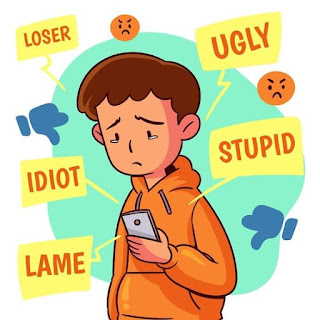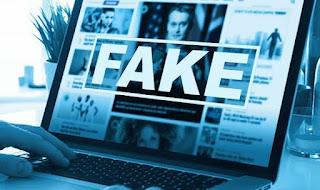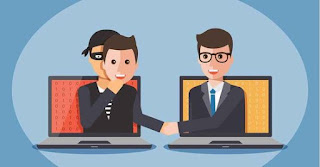The Dark Side of Social Media: Unmasking the Hidden Dangers That Could Ruin Your Life
In the present era of digital advancements, social media has become an indispensable aspect of our lives. It allows us to connect with others, share our thoughts and experiences, and stay updated with the latest trends. However, behind the allure of social media lies a darker side that can have severe consequences for individuals. This article aims to shed light on the hidden dangers of social media that could potentially ruin your life. By understanding these risks, you can navigate the online world more safely and protect your well-being.
Table of Contents
- The Illusion of Perfection: Unhealthy Comparison on Social Media
- Cyberbullying: The Cruelty Beyond the Screen
- Invasion of Privacy: Protecting Your Personal Information
- Mental Health Impact: The Toll of Constant Validation
- Addiction and Time Wasting: Breaking Free from the Social Media Spiral
- Online Predators: Guarding Against Digital Threats
- Fake News and Misinformation: The Power of Manipulation
- Professional Repercussions: The Impact on Your Career
- Health Consequences: Physical and Emotional Effects
- Social Isolation: The Paradox of Hyper connectivity
- Identity Theft: Safeguarding Your Digital Identity
- Distorted Reality: The Influence of Filtered Content
- Reduced Productivity: The Cost of Distractions
- Parental Concerns: Protecting Children in the Digital Age
- Privacy Settings: Taking Control of Your Social Media Presence
The Illusion of Perfection: Unhealthy Comparison on Social Media
Cyberbullying: The Cruelty Beyond the Screen
Invasion of Privacy: Protecting Your Personal Information
Mental Health Impact: The Toll of Constant Validation
Addiction and Time Wasting: Breaking Free from the Social Media Spiral
Online Predators: Guarding Against Digital Threats
Social media provides a breeding ground for online predators who target vulnerable individuals, particularly children and teenagers. It is crucial to educate oneself and loved ones about online safety, including privacy settings, identifying red flags, and reporting suspicious activities.
Fake News and Misinformation: The Power of Manipulation
Professional Repercussions: The Impact on Your Career
Employers increasingly use social media to screen job applicants, making it crucial to maintain a professional online presence. Inappropriate posts, controversial opinions, or unflattering content can damage one's reputation and jeopardize career prospects.
Health Consequences: Physical and Emotional Effects
Social Isolation: The Paradox of Hyper connectivity
Paradoxically, excessive social media use can lead to social isolation and loneliness. Spending excessive time online can hinder meaningful real-life connections, leading to a sense of disconnection and alienation from the physical world.
Identity Theft: Safeguarding Your Digital Identity
Distorted Reality: The Influence of Filtered Content
The abundance of filtered and edited content on social media can distort reality and create unrealistic expectations. This can impact self-esteem, body image, and mental well-being. It is essential to remember that social media often portrays a highlight reel, not the full picture.
Reduced Productivity: The Cost of Distractions
Social media platforms are notorious for their ability to distract and decrease productivity. Constant notifications and the temptation to check feeds can hinder concentration and time management. Implementing strategies to minimize distractions and prioritize tasks can help maintain productivity.
Parental Concerns: Protecting Children in the Digital Age
Parents face the challenge of monitoring their children's social media usage and protecting them from potential dangers. Open communication, setting boundaries, and educating children about responsible online behavior are crucial in ensuring their safety and well-being.
Privacy Settings: Taking Control of Your Social Media Presence
Understanding and utilizing privacy settings is vital for taking control of your social media presence. Adjusting settings to limit who can see your posts, reviewing friend lists, and being mindful of third-party apps can help protect your privacy and minimize potential risks.
While social media offers numerous benefits and opportunities, it is crucial to be aware of its dark side. By recognizing and understanding the hidden dangers, we can navigate the digital landscape more safely. Remember to prioritize your mental health, protect your personal information, and engage in responsible online behavior. By doing so, you can mitigate the risks and enjoy the positive aspects of social media without compromising your well-being.
FAQs
Q1: How can I protect myself from cyberbullying on social media?
A: Safeguarding yourself from cyberbullying requires proactive steps:
- Utilize privacy settings to control who can interact with you online.
- Avoid sharing personal information that could be exploited by bullies.
- Be cautious when accepting friend requests or engaging with unknown individuals.
- Report and block cyberbullies to prevent further harassment.
- Seek support from trusted friends, family, or professionals if you experience cyberbullying.
Q2: What are some signs of social media addiction?
A: Recognizing signs of social media addiction can help address the issue:
- Constantly checking social media, even in inappropriate or inconvenient situations.
- Feeling restless or anxious when unable to access social media.
- Neglecting real-life responsibilities and relationships due to excessive social media use.
- Experiencing withdrawal symptoms or irritability when attempting to reduce social media usage.
Q3: How can I protect my children from online predators?
A: Ensuring your children's safety online involves various protective measures:
- Educate them about online safety, including the risks of sharing personal information.
- Set clear boundaries for their social media usage and monitor their activities.
- Encourage open communication and establish trust so they can share any concerning encounters.
- Utilize parental control software or filters to restrict access to inappropriate content.
- Stay informed about the latest online threats and educate yourself about the platforms your children use.
Q4: How can I recognize fake news and misinformation on social media?
A: Developing critical thinking skills can help identify fake news and misinformation:
- Verify the credibility of the source by checking reputable news organizations or fact-checking websites.
- Cross-reference information with multiple reliable sources to validate accuracy.
- Evaluate the expertise and reputation of the author or organization sharing the information.
- Be wary of sensationalized headlines or content designed to evoke strong emotional reactions.
- Look for supporting evidence, citations, or diverse perspectives within the article or post.
Q5: How can I maintain a healthy balance with social media?
A: Establishing a healthy relationship with social media requires mindful practices:
- Set specific time limits for social media use and stick to them.
- Engage in offline activities that bring fulfillment and allow for personal connections.
- Practice self-awareness and monitor how social media affects your mood and well-being.
- Curate your social media feed to follow accounts that inspire and uplift you.
- Prioritize face-to-face interactions and allocate time for meaningful real-life experiences.









